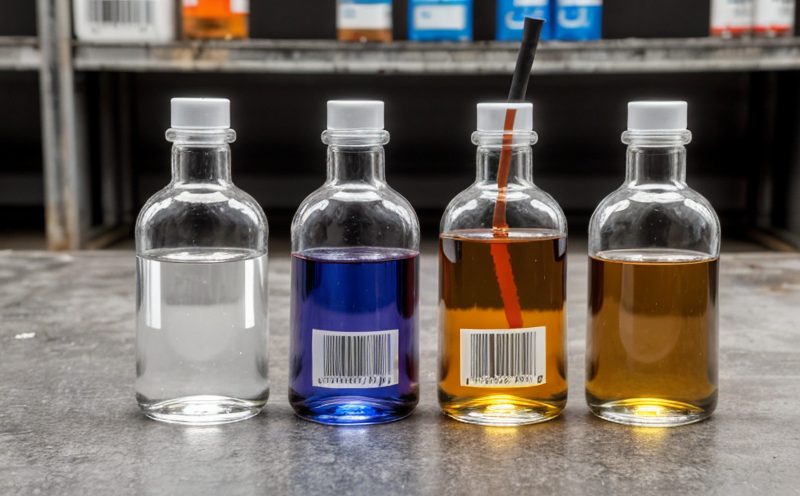ISO 2812 Coating Stability Testing Against Liquids
The ISO 2812 standard is a critical protocol used to assess the stability of coatings when exposed to various liquids. This testing is essential in sectors where long-term performance and durability are paramount, such as automotive manufacturing, marine engineering, and infrastructure construction.
Coatings are applied to protect materials from environmental factors that can lead to degradation over time. These include chemicals, moisture, UV radiation, and mechanical stress. In many industries, the exposure of coatings to liquids is a significant concern due to the potential for swelling, delamination, or chemical attack.
The ISO 2812 test method evaluates how well a coating resists swelling and degradation when exposed to specific liquids. The standard specifies the procedure for testing by immersion, which involves placing coated specimens into liquid solutions at controlled temperatures and humidity levels. This allows researchers and manufacturers to predict real-world performance under various conditions.
The testing process is designed to simulate potential exposure scenarios that coatings might encounter during their lifecycle. By understanding these vulnerabilities early in the development or quality assurance phase, businesses can refine their products before commercial release. This ensures compliance with industry standards and enhances product longevity, thus reducing maintenance costs and downtime.
Coating stability testing against liquids is particularly important for materials that are exposed to harsh environmental conditions. For instance, automotive paints need to resist the chemicals found in road salt during winter months. Similarly, coatings applied to marine structures must withstand prolonged exposure to seawater. Properly conducted ISO 2812 tests help ensure these coatings maintain their integrity and performance over extended periods.
The standard also considers other variables that can influence coating stability, such as temperature, humidity, and the specific liquid used for testing. These factors are crucial in understanding how different environmental conditions affect coating behavior. By controlling these parameters, ISO 2812 provides a standardized approach to evaluating coating performance under realistic conditions.
Testing according to ISO 2812 helps manufacturers develop more robust and reliable coatings that can withstand the rigors of industrial applications. This not only improves product quality but also contributes to environmental sustainability by reducing waste associated with premature failure due to poor material selection or improper testing methods.
Applied Standards
- ISO 2812:2017 — This standard specifies the procedure for determining the resistance of coatings to swelling and degradation when immersed in liquids.
- ASTM D4387-16 — Offers supplementary guidance on testing methods that complement ISO 2812, particularly focusing on additional parameters like drying conditions.
The combination of these standards ensures comprehensive evaluation of coating performance across multiple environmental stressors. Compliance with ISO 2812 and ASTM D4387 demonstrates a commitment to quality control and adherence to international best practices in the industry.
Eurolab Advantages
- Expertise and Experience: Eurolab has extensive experience in conducting ISO 2812 tests, ensuring accurate and reliable results. Our team of experts is well-versed in interpreting the nuances of this standard.
- State-of-the-Art Facilities: We utilize advanced laboratory equipment tailored for precise testing according to ISO 2812 guidelines. This includes temperature-controlled immersion chambers and sophisticated measurement instruments.
- Comprehensive Reporting: Eurolab provides detailed reports that not only summarize the test results but also offer insights into potential areas of improvement based on our findings.
Competitive Advantage and Market Impact
Conducting ISO 2812 coating stability testing offers significant competitive advantages by providing a clear understanding of how coatings will perform in real-world conditions. Here are some key benefits:
- Informed Decision-Making: By identifying weaknesses early, businesses can make informed decisions about material selection and process improvements. Enhanced Product Reputation: Demonstrating compliance with recognized international standards enhances the reputation of your products in both domestic and international markets.





